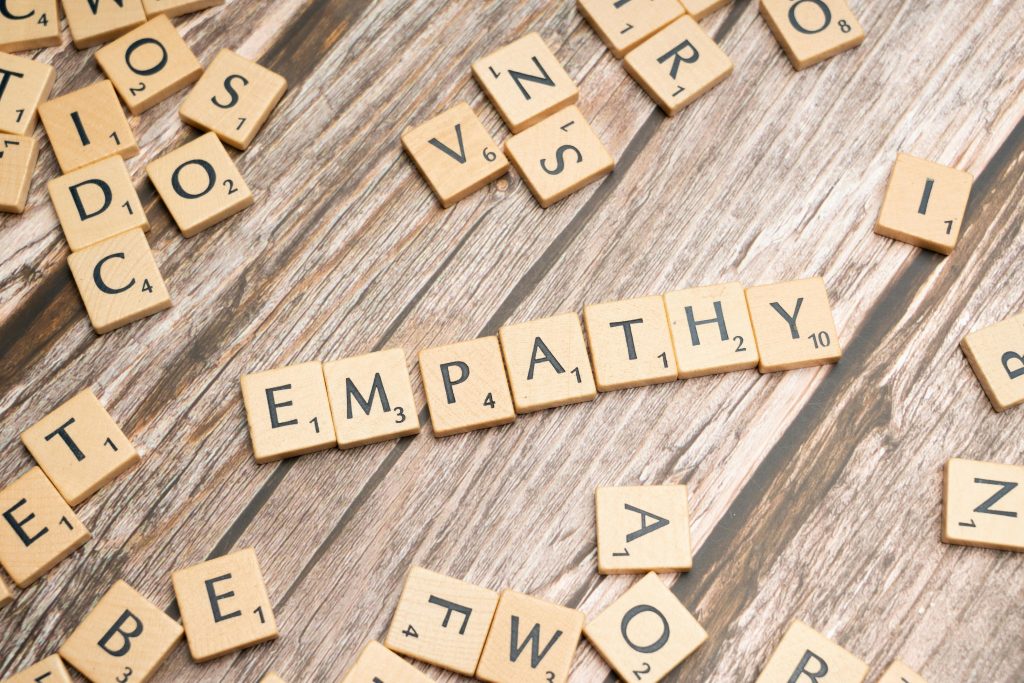
Many PWDs can relate to the difficulty of dealing with people who lack empathy toward their disability.
The consequences of lacking empathy extend far beyond simply hurting someone’s feelings. It can isolate and demotivate people, including those with disabilities, potentially hindering them from excelling at various aspects of their lives.
By contrast, having the ability to understand and imagine another person’s emotions and experiences is crucial for fostering better personal and professional relationships, among other benefits.
The Benefits of Professional & Personal Empathy
Multiple bodies of research have essentially confirmed the positive effects of empathy within most, if not all facets of life. These benefits include:
Improved teamwork and work productivity. Colleagues that like each other tend to collectively perform better than those that don’t. By extension, PWDs exhibit greater work ethic and performance in empathetic workplaces, thanks to the lack of prejudice over their disability.
Increased sociability. Having empathy toward others is indirectly caring for yourself. Research reinforces this idea, indicating that those that learn how to read other’s emotions tend to naturally become more outgoing and sociable. Many PWDs tend to cope in isolation and have difficulties seeking help, so developing empathy is crucial for both PWDs and the people around them.
Greater professional care for PWDs. In many service industries such as healthcare, PWDs can struggle with receiving adequate service, due to prejudice or difficulties in communication due to a disability. Service workers who are trained to empathise can much more easily understand the needs of their PWD customers and respond accordingly, such as by knowing when and how to use assistive technology.
Fostering Empathy During Childhood
Even beyond the PWD perspective, fostering empathy early on has great positive impacts on one’s life, and the lives that one interacts with.
If you’re a parent, here are some empathy-building tips to keep in mind to help your child develop empathy:
Be a great social reference. It’s more difficult for a child to develop empathy if their parents lack the trait. Children from as early as 6 months old gradually begin to model their behaviour based on the people around them. By age 5, children start becoming capable of knowing how to deliberately comfort others. Being a good role model to them ensures that their ability to empathise properly develops during that time frame.
Encourage your child to speak their mind. Many children from the ages 5 and above will tend to talk about their feelings openly, provided that they were not emotionally malnourished growing up. This emotional openness is very important for further developing their empathy. Learning to discuss and process their own emotions will help them do the same with other people’s emotional experiences.
Observe other people with your child. Around the age of 4, your child will likely become able to see a situation through different perspectives. For example, your child could see their friend playing with others and imagine how their friend may feel in the moment. Reinforce this ability by watching and discussing other people’s interactions with your child. This will further develop their ability to understand another’s experiences, even if your child hasn’t personally lived through similar circumstances.
General Empathy-Building Strategies
For adults, developing empathy may not be as simple, considering they are no longer as impressionable as children, generally speaking.
That said, here are some empathy-building tips that may nonetheless prove effective:
Find ways to break your routine. Adhering to a schedule is great for discipline and getting things done, but it can also make you rigid in both actions and thoughts. Stepping out of your comfort zone and doing something new means making potential mistakes and experiencing failure. Yet such circumstances also develop your humility and encourage you to learn how to ask for help. Both these traits can directly contribute to building empathy.
Engage in difficult but calm conversations. Many people tend to avoid conflict during social interactions, but there are many cases in which such situations can teach you to empathise with others better. For example, you shouldn’t avoid discussing difficult topics surrounding one’s experiences with disability, provided that you:
- Focus on listening to their thoughts, instead of desiring to interrupt.
- Study the issue being discussed, which will help you further understand where they’re coming from.
Join a community with shared goals. Studies have indicated that being part of a group working toward a common goal can very effectively resolve preconceived bias. If you’re a PWD, it’s a great idea to join any community projects that appeal to you. This allows both you and the people you work with a chance to foster an understanding and respect for each other.
References
Sonya R. Miller (2015) Fostering informed empathy through patient centred-education about persons with disabilities [Accessed 30 April 2024] Available at: https://www.ncbi.nlm.nih.gov/pmc/articles/PMC4530532/
Dona Matthews (2019) Empathy Milestones: How Your Child Becomes More Empathetic [Accessed 30 April 2024] Available at: https://www.psychologytoday.com/us/blog/going-beyond-intelligence/201911/empathy-milestones-how-your-child-becomes-more-empathetic
John Jordan (2023) The Importance Of Empathy Training In Today’s Workforce [Accessed 30 April 2024] Available at: https://www.forbes.com/sites/forbeshumanresourcescouncil/2023/12/08/the-importance-of-empathy-training-in-todays-workforce
Jeremy Sutton (2020) How to Develop Empathy: 10 Exercises & Worksheets [Accessed 30 April 2024] Available at: https://positivepsychology.com/empathy-worksheets/